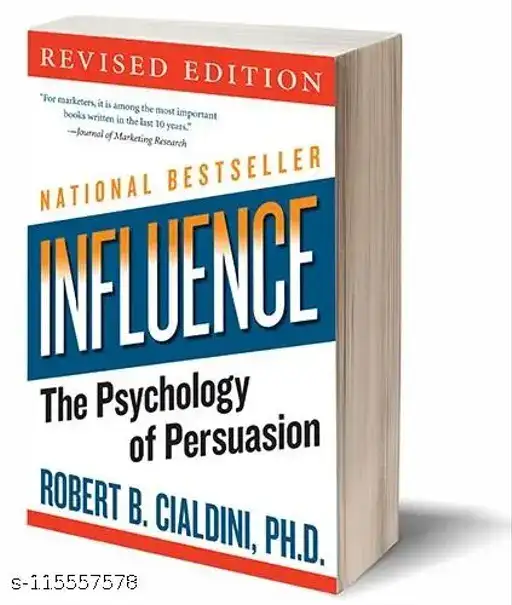
Learnings From: Influence - Psychology of persuasion
#1/15 Sharing Book Summary
Top Five Principles of Persuasion by Robert Cialdini
-
Principle of Reciprocity Humans value balance and dislike feeling indebted. When someone gives you a gift, you feel compelled to return the favor. In business, this can be seen in restaurants where a small mint given with the bill can increase tips by 3%. If the waiter adds a personal touch, tips can increase by 23%. To use this principle, be the first to give and make your gesture personalized and unexpected.
-
Principle of Scarcity People want what is rare or in limited supply. For example, imagine a popular concert with only a few tickets left. When people hear that tickets are almost sold out, they rush to buy them, fearing they'll miss out. This urgency and exclusivity drive demand. In business, create a sense of urgency by highlighting limited availability or exclusive offers to encourage quick decision-making.
-
Principle of Consensus People follow the actions of others. In hotels, signs asking guests to reuse towels for environmental reasons achieve 34% compliance. Changing the message to "8 out of 10 guests reuse their towels" increases compliance to 52%. Leverage social proof by showcasing how many others have made the same choice.
-
Principle of Authority People are more likely to be influenced by those who are authoritative and knowledgeable. For example, dentists in white coats endorse toothpaste, and renowned movie directors promote the camera capabilities of mobile phones. Authority and credibility build trust, making people more likely to follow their advice.
5.Principle of Liking People are more likely to be influenced by those they like. According to Cialdini's research, MBA students who discussed personal interests before negotiating reached agreements 90% of the time, compared to 55% for those who got straight to business.

One interview, 1000+ job opportunities
Take a 10-min AI interview to qualify for numerous real jobs auto-matched to your profile 🔑
I Tried to summarise this book as best as I could!
Suggest me which books do you want me to cover....

Principle of reciprocity is Human cooperation/coordination We get money for work we do,
Essentially everything that we do is transactional in nature

Gods work



